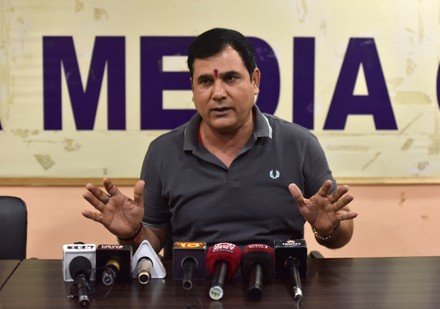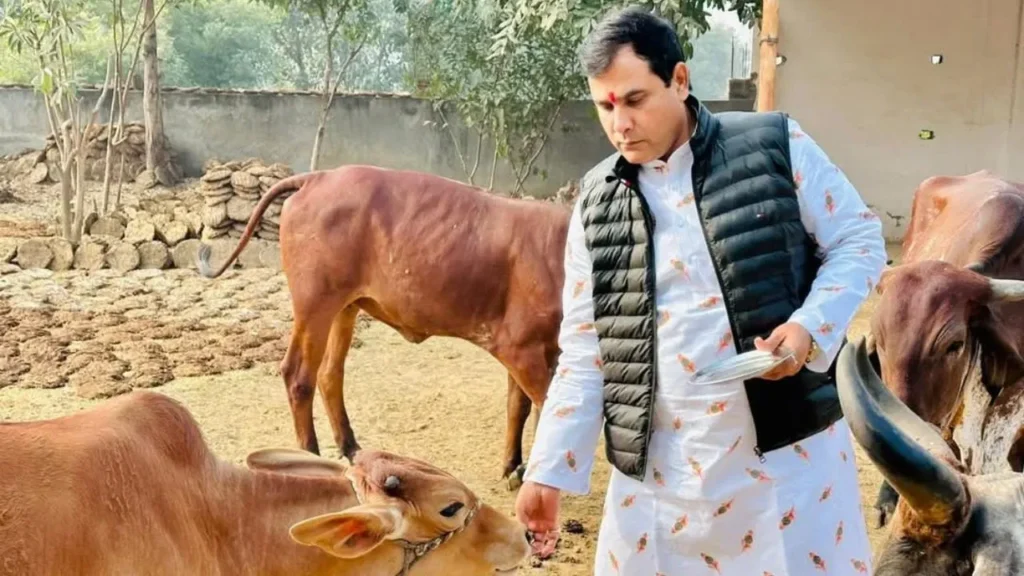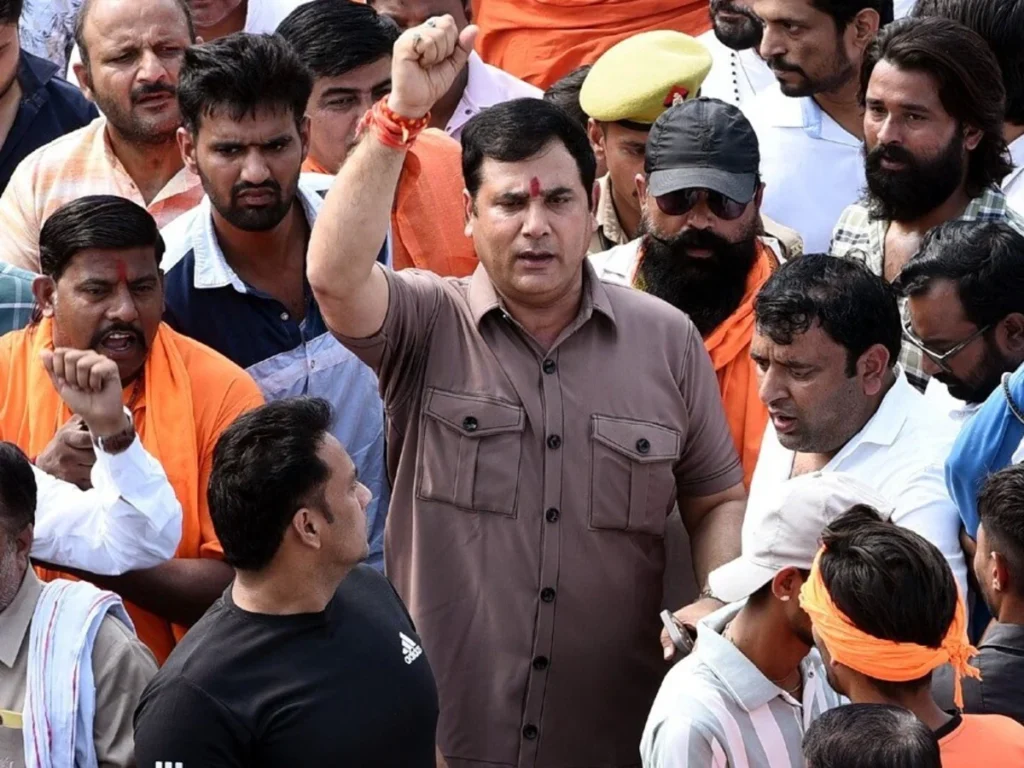With Bakrid (Eid al-Adha) on June 7, Bharatiya Janata Party (BJP) MLA, Nand Kishore Gurjar, has sought a temporary prohibition of animal slaughter and running meat shops in the area around Hindon Airport in Ghaziabad. In the name of aviation safety and communal harmony, the action has ignited new political controversy over religious freedom, administrative impartiality, and politics over use of cultural issues.

Safety or Symbolism
In a letter to the Deputy Commissioner of Police, Gurjar reasoned that open animal waste disposal and meat shops close to Hindon Air Base are a grave threat to aircraft because of bird hits. “Loni comes under the 5-kilometre radius of Hindon Air Base and is regulated by Aircraft Act rules. With Bakrid, there is a risk of bird-hit cases due to animal carcasses attracting birds. That is a risk to national security,” he wrote.
He requested the administration to relocate animal sacrifices to specific locations outside Loni and pointed out nearby towns like Khekra or sections of Delhi as possible alternatives. “This is not about religion. It is about law, order, safety, and communal peace,” Gurjar said.
But whereas the MLA framed his request as a security and logistical issue, opposition leaders and locals see it through another prism altogether, one influenced by political gamesmanship and religious dogma.
A Political Pattern Emerges
Gurjar’s petition is the latest in a string of BJP-led administrative initiatives critics claim unfairly target Muslim religious practices. The timing of the request, two weeks ahead of Bakrid, has sparked incredulity.
“These are all part of a pattern of festival-time politics,” said Dr. Arvind Menon, who teaches political science at Lucknow University. “There were similar issues raised about Eid namaz in public places, halal food during Hindu festivals, and loudspeakers in mosques. They are small, localized flashpoints that find statewide political traction.”
For Gurjar, a prolific Hindutva politician with a track record of inflammatory remarks, the step slots conveniently into a script meant to bank Hindu votes in western Uttar Pradesh, where communal polarization has been a vote-catching formula for the BJP over the last decade.

Opposition Reaction: “Religious Targeting”
Opposition leaders have criticized the move in strong terms. Samajwadi Party MP Shafiqur Rahman Barq described the demand as a “deliberate provocation” and an attack on religious freedom.
“If the concern is actually about aviation safety, then there needs to be all-year-round regulation of waste and bird control. Targeting Bakrid reveals the real intention—political posturing and targeting minorities,” Barq added.
The Congress party seconded this view in a statement, calling on the Ghaziabad administration to enforce constitutional rights and see to it that religious activities are preserved while keeping public order intact.

Community Concerns
Muslim leaders in the area have complained of what they believe to be an ongoing pattern of institutional pressure during Islamic celebrations.
“Each year during Eid or Bakrid, some leader brings out some new restriction. We are willing to work with safety standards, but the continuous public shaming and targeting of our practices is de-moralizing,” said Imran Qureshi, a community organizer in Ghaziabad.
Meanwhile, meat shop owners—many of whom rely on festival-season sales—fear financial losses if a ban is imposed. “Bakrid is a major business period for us. A ban, even for a few days, will crush our earnings,” said Shabbir Khan, who runs a licensed meat shop in Loni.
The BJP’s Broader Strategy
Political commentators maintain that these are all part of a long-term game plan by the BJP to control the narrative on “cultural nationalism” and position the party as a guardian of mainstream Hindu values.
“The BJP doesn’t require a national issue each time. Localized communal impulses such as these—particularly in electorally competitive segments—serve to energize their base and keep opposition parties on the back foot,” political strategist Rakesh Awasthi said.
Gurjar MLA Loni constituency, with its combination of town and country people and substantial Muslim minority, has seen a number of low-grade communal tensions in the past. MLA’s tough rhetoric appeals to his core voters, who see him as a defender of Hindu interests.
Administrative Response
The Ghaziabad district administration has yet to issue official orders in reply to Gurjar’s letter. One senior official, who requested anonymity, stated, “The matter is under consideration. We are meeting all religious and community leaders to make sure that things are done in a peaceful manner.”
Authorities had earlier imposed temporary restrictions around sensitive areas such as airbases, but such moves had generally been made quietly and with people’s coordination. Gurjar’s open letter has raised the issue, which may make it difficult to solve.
Conclusion
As Bakrid approaches, the fate of this demand is likely to dictate the tone of festival festivities in Ghaziabad and elsewhere. While the concern for air safety is valid, the political packaging of the issue—particularly by the chief of a ruling party—has ensured that the issue is no longer administrative in nature only.
For many, it’s yet another reminder that in India’s increasingly polarized politics, even religious festivals are not immune from becoming battlegrounds for political messaging.

